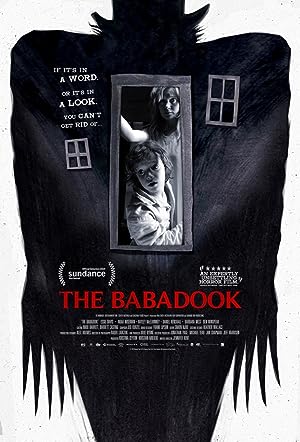The Babadook is about a mother and son and whether or not they will survive the various strains on their relationship, including a monster that lurks in unexpected places and cannot be eliminated. It is a critically acclaimed (psychological) horror film.
The Babadook is an objectively good film, but even without hearing any spoilers or even knowing anything about the movie, I think that the movie got hyped up too much for me, and when I finally saw it, I knew exactly what was going to happen within seconds. While I could appreciate how well crafted the movie was, I felt emotionally unattached from the entire movie because of my ability to predict everything that was going to happen.
The Babadook is an Australian film, and usually Australian films can be quite shocking, particularly dramas, in the way that they push boundaries and expectations. The most frightening Australian films are those based on real life horrors such as The Snowton Murders or Animal Kingdom so I think that I expected a lot more from the film than even the hype led me to believe. While it succeeded in psychologically exploring dark corners in the way that the movie represented parent child relationships, especially maternal love, I usually finish an Australian film reeling from what I just witnessed, but not this time. Even the death of a certain character, which ordinarily would leave me in anguish and issuing trigger warnings, was expected so while it should have been upsetting, it was only theoretically horrible. It did not actually emotionally have a big impact on me. The titular monster lacked a Guillermo del Toro-esque power usually present in Spanish films with magical realism elements. It is rare for a magical realism film to fully succeed if it isn’t made by a Spanish director.
I’m in the minority, but The Babadook felt like a safe film because I never believed that it would cross a certain line. I’m not saying that I wanted it to, but I am saying that it was a whole lot of set up, visually sumptuous and unique oneiric and waking depictions of blurring of boundaries setup, but set up nevertheless. In real life, things get way worse, and ultimately I felt as if the filmmaker loved her characters too much to let real harm come to them and an animal sacrifice was a weaker substitute, both literally and figuratively. This movie is way more sophisticated and intelligent in the way that it explores similar themes as Mom and Dad, but the latter lands a punch even while pulling them.
The Babadook does have the advantage of shifting from the perspectives of the two main characters so the viewers’s sympathizes with one then the other so the viewer can never fully or permanently side with one character against the other. I suppose that it is jarring for some to see children or mothers equally as antagonists and protagonists, but for me, it is just another day at the office. All kids aren’t cute, and all mothers aren’t great. Think long and hard before having one or becoming one. The movie graciously provides a credible excuse, but sometimes such exculpatory factors don’t exist, and people are just awful for no particular reason.
I did love how The Babadook punctured the myth of a supportive family and how alone people are during difficult times. I wish that there were more emphasis on the point, “You don’t have to be fine, you know.” The insects in this film and Hereditary were suitably foreboding and provided similar markers for the audience regarding the psychological state of the characters. I loved how the main characters’ perspective of outsiders reflected their internal turmoil. One professional couple becomes benign and well meaning whereas earlier in the film, they definitely seemed more sinister.
I have to give a slight reprimand to The Babadook for ultimately being dismissive of psychological remedies. I would have loved if there were more of a horror metaphor for depression; however even though all the symptoms are there, external factors inflicting psychological harm are to blame. It shared many common scenes with Tully, which is a drama that addresses similar themes. Coincidentally both films seem to fall short of fulfilling the movie’s full potential of exploring common, relatable afflictions in favor of more contrived scenarios perhaps to reassure audiences that this is only a movie.
I liked that the ending of The Babadook wasn’t a pat, fully resolved denouement, but it is a little disturbing that such potential for psychosis is still present. Sure it is a functional way of dealing with the monster, but it is still too private with a potential for real harm. Some consequences can have long term effects so a private, functional solution can still be as bad as functional alcoholism. Problems never really go away, but failing to openly acknowledge them and warn others of its presence is also a form of abuse, a requirement to keep a harmful secret that enables parentification in the long run. Bugsy would call BS on this resolution.
If you love The Babadook, then see Goodnight Mommy or vice versa. Goodnight Mommy, an Austrian film, is a far more gruesome, but both movies explore similar themes. I think that I prefer when abuse is less metaphorical because I wasn’t a fan of that film either. Stick to Australian drama for real horror instead of this evocatively beautiful, but ultimately safe horror film.
Stay In The Know
Join my mailing list to get updates about recent reviews, upcoming speaking engagements, and film news.





